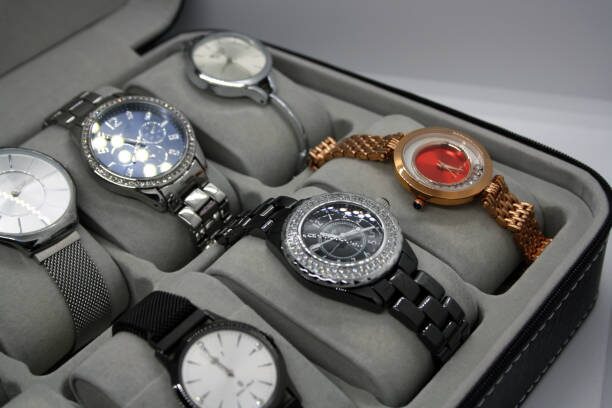In recent years, sustainability has emerged as a pivotal trend across various industries, including luxury watchmaking. Traditionally associated with opulence and craftsmanship, the world of luxury watches is now witnessing a significant shift towards sustainability-driven practices. This transformation is driven by increasing consumer awareness, regulatory pressures, and the realization among watchmakers that sustainable practices are not only essential for the environment but also for the long-term viability of their businesses. In this article, we explore the emergence of sustainability in luxury watchmaking, its key drivers, challenges, and the innovative approaches adopted by leading watch brands to integrate sustainability into their operations.
Understanding the Shift
Luxury watchmaking, with its emphasis on precision engineering and timeless aesthetics, has long been associated with exclusivity and heritage. However, as global concerns about climate change, resource depletion, and social responsibility have escalated, consumers are demanding more transparency and accountability from the brands they support. This shift in consumer attitudes has compelled luxury watchmakers to reevaluate their production processes, sourcing methods, and overall impact on the environment.
Key Drivers of Sustainability in Luxury Watchmaking
- Consumer Demand: Today’s consumers, particularly millennials and Gen Z, are increasingly prioritizing sustainability in their purchasing decisions. They seek products that align with their values, including environmental stewardship and ethical sourcing. Luxury watchmakers are responding to this demand by integrating sustainable practices into their offerings, thereby appealing to a more conscientious consumer base.
- Regulatory Pressures: Governments and regulatory bodies worldwide are implementing stricter environmental regulations and standards. Luxury watchmakers must comply with these regulations to mitigate their environmental footprint and avoid potential fines or penalties. By embracing sustainability initiatives, watch brands can demonstrate their commitment to environmental responsibility while ensuring compliance with evolving regulatory requirements.
- Industry Collaboration: The luxury watchmaking industry is characterized by collaboration and competition among brands. As sustainability becomes a focal point, watchmakers are increasingly collaborating with suppliers, industry associations, and non-profit organizations to share best practices, develop sustainable technologies, and drive collective progress towards a more sustainable future.
Challenges Faced by Luxury Watchmakers
Despite the momentum towards sustainability, luxury watchmakers encounter several challenges in implementing environmentally friendly practices:
- Supply Chain Complexity: The complexity of the watchmaking supply chain poses challenges in tracing the origins of raw materials and ensuring ethical sourcing practices. Luxury watchmakers must work closely with suppliers to establish transparent supply chains and verify the sustainability credentials of their materials.
- Technological Constraints: The intricacies of watchmaking require advanced technologies and specialized materials, some of which may not be readily available in sustainable alternatives. Balancing the need for precision and performance with environmental considerations presents a significant challenge for watchmakers seeking sustainable solutions.
- Consumer Perception: While sustainability is gaining traction in the luxury watchmaking industry, some consumers may still perceive sustainable timepieces as inferior in quality or design. Luxury watchmakers must educate consumers about the value proposition of sustainable watches and emphasize the craftsmanship and attention to detail that characterize their products.
Innovative Approaches to Sustainability
Despite the challenges, several luxury watch brands are leading the way in integrating sustainability into their practices:
- Ethical Sourcing: Many luxury watchmakers are prioritizing ethical sourcing of materials, such as conflict-free diamonds, fair-trade gold, and responsibly harvested wood. By partnering with certified suppliers and implementing rigorous sourcing standards, these brands ensure that their timepieces uphold ethical principles throughout the production process.
- Eco-friendly Materials: Some watchmakers are exploring innovative materials and manufacturing techniques to reduce their environmental impact. For example, brands are experimenting with recycled metals, biodegradable packaging, and sustainable alternatives to leather straps. These eco-friendly materials not only minimize waste but also offer unique aesthetic and performance benefits.
- Energy Efficiency: Energy consumption is a significant concern in watchmaking, particularly in the production of mechanical movements and electronic components. Luxury watch brands are investing in energy-efficient manufacturing processes, renewable energy sources, and eco-friendly facilities to reduce their carbon footprint. Additionally, some brands are designing watches with solar-powered movements or kinetic energy systems Perfect Rolex, further enhancing their sustainability credentials.
- Longevity and Repairability: In contrast to the fast fashion model, which promotes disposable consumer goods, luxury watches are designed to stand the test of time. Many watchmakers are emphasizing longevity and repairability in their products, offering comprehensive service and maintenance programs to prolong the lifespan of their timepieces. By encouraging consumers to cherish and repair their watches rather than replace them, brands promote sustainability and reduce waste in the long run.
Conclusion
Sustainability is no longer a mere trend but a fundamental imperative shaping the future of luxury watchmaking. As consumer preferences evolve and environmental concerns intensify, luxury watch brands must embrace sustainability as a core value proposition, integrating ethical sourcing, eco-friendly materials, and energy-efficient practices into their operations. By adopting innovative approaches and collaborating with industry stakeholders, luxury watchmakers can pave the way for a more sustainable and responsible future while preserving the artistry and heritage of their craft. As consumers become increasingly discerning, the watchmakers who prioritize sustainability will not only thrive in the market but also leave a lasting legacy of environmental stewardship and social responsibility.

